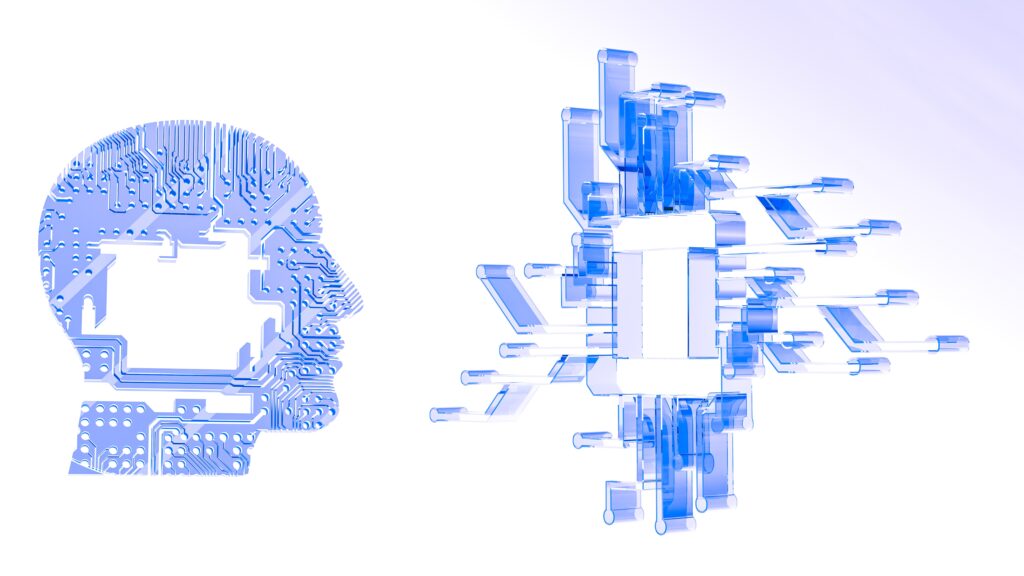Artificial intelligence has revolutionized many industries, and digital marketing is no exception. AI-generated content, created with sophisticated algorithms designed to mimic human actions, is being used in over 80% of content marketers’ strategies in 2024. This advancement prompts a crucial question: can AI-generated content rank well in search engine results? Search engines like Google use complex algorithms to determine content ranking. They focus on factors such as relevance, quality, and user engagement. Let’s explore whether AI-generated content can meet the rigorous standards set by search engines and achieve high rankings.
Understanding AI-Generated Content
AI-generated content is any type of written or visual material created by artificial intelligence algorithms, like ChatGpt, Jasper, or DALL-E. These algorithms are designed to mimic human creativity and writing skills, allowing content marketers to streamline the content creation process, making it faster and more efficient while maintaining a level of quality that is comparable to human-generated content.
AI technologies can create several types of content. Articles, blog posts, social media captions, product descriptions, and more can be created using natural language processing models. AI platforms can also create images and videos, including animations and promotional videos.
AI-generated content is not limited to a single industry; it has a broad range of applications across various sectors. For example, in e-commerce, online retailers can generate product review summaries that compile other reviews’ general thoughts and feelings, giving shoppers relevant information during their shopping experiences. In education, AI can be used to make educational materials, like quizzes and interactive activities, making learning more accessible and enjoyable.
The versatility and efficiency of AI-generated content have made it an invaluable tool in today’s digital world, enabling businesses and individuals to produce high-quality material quickly and cost-effectively. However, understanding the intricacies of how this content performs in search engine rankings requires a deeper exploration of SEO criteria and the specific challenges and advantages of AI-generated material.
Criteria for Ranking Content
Search engines, like Google, have developed advanced algorithms for delivering the best possible results for a query. These algorithms consider hundreds of factors to determine the relevance and quality of content, ensuring users receive the most accurate and helpful information. Some of the primary components of search engine algorithms include the following.
-
Crawling and Indexing
Search engines use bots known as spiders to discover and categorize web pages. These bots store content in the search engine’s database using key indicators like location, keywords, and backlinks.
-
Ranking Signals
Various factors, known as ranking signals, influence how content is ranked. These include on-page elements like keywords, meta descriptions, and content quality, as well as off-page factors like backlinks and social signals.
-
Content Depth
In-depth, long-form content that thoroughly covers a topic is often highly favored by search engines, as it is more likely to answer a query comprehensively.
-
Originality
Plagiarized or duplicate content is penalized and can lead to lower rankings for an entire brand.
-
User Engagement
Search engines also use metrics like click-through rates and bounce rates to indicate how engaging and useful the content is to users.
-
Relevance to Search Queries
Content must closely align with users’ search intent, feature appropriate keywords, and address the needs of the audience.
-
Mobile-Friendliness
Recently, Google implemented mobile-first indexing to recognize the growing popularity of mobile devices. Ensuring content is accessible and well-displayed on all devices is crucial for ranking.
By adhering to these criteria, content creators can enhance their chances of ranking well in the search engine results pages (SERPs). For AI-generated content to succeed in this environment, it must not only adhere to these principles but also overcome specific challenges associated with AI content generation.
AI-Generated Content and SEO
When AI-generated content first emerged, there was significant skepticism regarding its ability to meet the standards set by search engines for ranking content. Some critics were also concerned about whether or not search engines would even crawl AI-generated articles. Last year, however, Google announced its stance on AI-generated content, noting that it holds this kind of content to the same standards as human-generated content. Case studies also reveal that businesses that use AI-generated content have similarly successful content strategies to those that do not. With proper optimization and oversight, AI-generated content can achieve competitive rankings, challenging the initial skepticism.
It is crucial to combine AI efficiency with human oversight and creativity. This hybrid approach can lead to the creation of high-quality content that meets SEO criteria and ranks well in search engine results.
Benefits of AI-Generated Content
Using AI-generated content poses numerous benefits for content marketers. One of the most significant advantages of AI-generated content is its ability to produce large volumes of quality content quickly and efficiently. This scalability benefits businesses and content creators who must maintain a high output to stay competitive. These algorithms continue to create the same quality of content even after thousands of words are generated. This allows businesses to create high-quality and high-quantity content.
AI-generated content can significantly reduce the costs associated with content creation. This kind of content allows businesses to focus their resources more effectively, leading to substantial savings. AI-generated content also allows brands to maintain a consistent tone and style across all content, regardless of who is editing it. This level of uniformity can be challenging to achieve with multiple human writers, helping brands develop content cohesion.
By leveraging these benefits, businesses and content creators can optimize their content strategies, enhance efficiency, and achieve better results in terms of engagement, reach, and search engine rankings.
Best Practices for Using AI in Content Creation
The most effective use of AI-generated content often involves a blend of human creativity and AI efficiency. This hybrid approach leverages the strengths of both to produce high-quality, engaging content. AI platforms can handle the bulk of content creation. However, human editors should refine and review the content to ensure it meets quality standards. Proofreading for grammatical errors and plagiarism ensures that AI-generated content can rank in search engine results.
Similarly to human-generated content, AI-generated content must adhere to SEO best practices. Relevant keywords must be incorporated into the content, and optimized meta titles and descriptions can improve click-through rates.
By following best practices for AI-generated content and SEO, content marketers can maximize the potential of AI-generated content. This ensures it is high-quality, engaging, and optimized for search engines.
We Can Help!
Effect Web Agency provides web design and marketing services for local, regional, national, and international clients. Contact us to learn how you can improve your online visibility.




